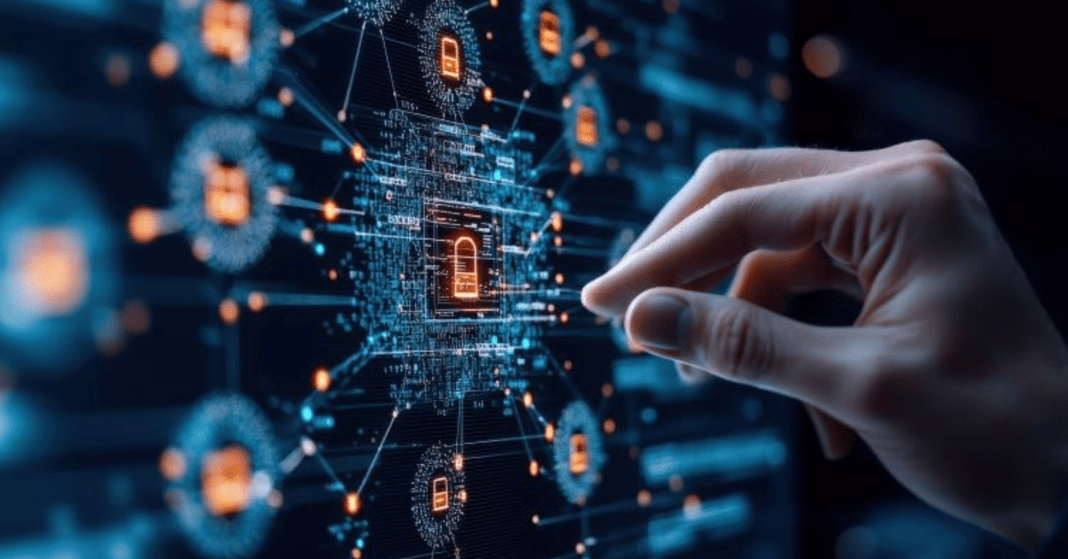The blockchain revolution has introduced unparalleled transparency, immutability, and decentralization into the digital world. However, the inherent openness of public blockchains raises privacy concerns, especially for sensitive transactions and personal data. This is where Zero-Knowledge Proofs (ZKPs) come into play, offering a groundbreaking solution to enhance privacy while preserving blockchain’s trustless nature.
In this comprehensive guide, we delve into the concept of Zero-Knowledge Proofs, their importance for blockchain privacy, and how they’re shaping the future of decentralized technologies.
What Are Zero-Knowledge Proofs?
Zero-Knowledge Proofs are cryptographic techniques that enable one party (the prover) to prove to another party (the verifier) that they know a specific piece of information without revealing the information itself. The concept was first introduced in the 1980s by researchers Shafi Goldwasser, Silvio Micali, and Charles Rackoff.
A ZKP must satisfy three core properties:
- Completeness: If the prover’s statement is true, the verifier will be convinced without any doubt.
- Soundness: If the statement is false, no malicious prover can convince the verifier otherwise.
- Zero-Knowledge: The verifier learns nothing beyond the validity of the statement.
How Do Zero-Knowledge Proofs Work?
To understand ZKPs, consider a simple analogy known as the cave example:
Imagine a circular cave with two paths leading to the same locked door. Alice (the prover) claims she knows the password to open the door. Bob (the verifier) stands outside and cannot see which path Alice takes. She walks down one path, opens the door, and emerges from the other path, proving she knows the password without revealing it.
This principle is the foundation of ZKPs: proving knowledge or truth without exposing the underlying information.
Types of Zero-Knowledge Proofs
There are two primary types of ZKPs:
- Interactive Zero-Knowledge Proofs:
- Involve multiple interactions between the prover and verifier.
- The verifier asks a series of questions to confirm the prover’s knowledge.
- Non-Interactive Zero-Knowledge Proofs (NIZKs):
- Require no back-and-forth communication.
- Provers generate a single proof that can be verified independently.
- Widely used in blockchain applications due to efficiency.
Importance of Zero-Knowledge Proofs for Blockchain Privacy
While blockchain ensures data integrity and transparency, this openness often conflicts with the need for privacy. For instance, in financial transactions, public exposure of wallet balances or transaction details can compromise users’ confidentiality. Here’s how ZKPs address these challenges:
1. Anonymity in Transactions
With ZKPs, users can prove they have sufficient funds for a transaction or meet specific criteria without revealing sensitive details like wallet balances or transaction amounts. Privacy-focused cryptocurrencies like Zcash leverage ZKPs to enable shielded transactions.
2. Regulatory Compliance Without Data Exposure
Businesses can prove compliance with regulations (e.g., KYC/AML checks) without disclosing customer data. This allows companies to balance privacy with legal requirements.
3. Secure Voting Systems
ZKPs can facilitate anonymous yet verifiable voting in decentralized governance systems, ensuring transparency without compromising voter privacy.
4. Data Sharing and Verification
ZKPs allow parties to verify claims about data without sharing the actual data. For example, a user could prove they are over 18 years old without revealing their date of birth.
Real-World Applications of Zero-Knowledge Proofs in Blockchain
1. Privacy-Centric Cryptocurrencies
- Zcash: Implements zk-SNARKs (Zero-Knowledge Succinct Non-Interactive Arguments of Knowledge) to enable private transactions.
- Monero: Uses similar privacy-preserving technologies, though not strictly ZKPs.
2. Decentralized Identity Verification
Projects like Microsoft’s ION and uPort use ZKPs to verify identities without exposing sensitive personal data.
3. Supply Chain Management
In supply chains, ZKPs can prove the authenticity of goods or certifications (e.g., organic or fair trade) without revealing proprietary information.
4. Healthcare Data Privacy
Patients can prove eligibility for services or share medical history securely using ZKPs, ensuring data confidentiality.
5. Gaming and NFTs
Blockchain-based games and NFT platforms use ZKPs to verify ownership and transactions without exposing user details.
Advantages of Zero-Knowledge Proofs
- Enhanced Privacy:
- Protects user data while ensuring transparency.
- Scalability:
- Reduces on-chain data, improving blockchain scalability.
- Regulatory Compliance:
- Enables proof of compliance without data exposure.
- Security:
- Minimizes the risk of data breaches by keeping sensitive information off-chain.
Challenges and Limitations
Despite their potential, ZKPs face several challenges:
- Computational Complexity:
- Generating and verifying proofs can be resource-intensive.
- Implementation Costs:
- Developing ZKP solutions requires specialized expertise and significant investment.
- Interoperability:
- Integrating ZKPs across different blockchain platforms remains a technical hurdle.
- Regulatory Uncertainty:
- Governments may struggle to balance privacy with oversight.
Future of Zero-Knowledge Proofs in Blockchain
The adoption of ZKPs is poised to grow as blockchain technology matures. Here are some trends to watch:
- Mainstream Adoption:
- As privacy concerns intensify, ZKPs will become a standard feature in blockchain protocols.
- Integration with Web3:
- Decentralized applications (dApps) will increasingly use ZKPs for secure, private user interactions.
- Scalability Solutions:
- ZK-rollups, a Layer 2 scaling solution, are gaining traction for reducing transaction costs and enhancing scalability.
- Interdisciplinary Applications:
- Beyond blockchain, ZKPs will find use in AI, IoT, and secure communication systems.
Conclusion
Zero-Knowledge Proofs represent a pivotal advancement in blockchain technology, addressing one of its most pressing issues: privacy. By enabling secure, private transactions and interactions, ZKPs unlock new possibilities for decentralized applications, from finance and identity verification to supply chains and healthcare. As the blockchain ecosystem evolves, the role of ZKPs will undoubtedly expand, cementing their status as a cornerstone of secure and scalable decentralized systems.
Embracing ZKPs not only enhances privacy but also fosters trust and innovation in the blockchain space. Whether you’re a developer, investor, or enthusiast, understanding and leveraging Zero-Knowledge Proofs will be crucial in navigating the next era of blockchain technology.
Disclaimer: The information provided in this article is for general informational purposes only and should be independently verified for accuracy. We strongly advise consulting with qualified professionals or experts before making any decisions based on the content. Our channel assumes no responsibility for any consequences arising from the use of this information.





